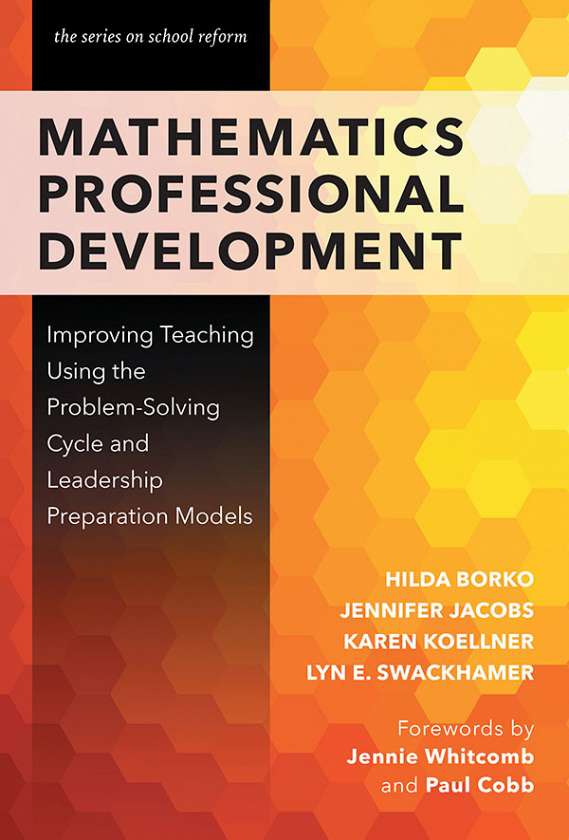Professors: Request an Exam Copy
Print copies available for US orders only. For orders outside the US, see our international distributors.
Hilda Borko, Jennifer Jacobs, Karen Koellner, Lyn E. Swackhamer
Publication Date: April 15, 2015
Pages: 160
Series: series on school reform

This resource will help school leaders and other professional development providers conduct ongoing, structured learning opportunities for mathematics teachers (K–12). The authors present models for professional development and the preparation of PD leaders designed and field-tested as part of two research projects supported by the National Science Foundation. The Problem-Solving Cycle model and the Mathematics Leadership Preparation model focus on topics of primary interest to mathematics teachers: mathematics content, classroom instruction, and student learning. The models are intentionally designed so that they can be tailored to meet the needs and interests of participating teachers and schools. Through engaging vignettes, the authors describe the models, summarize key research findings, and share lessons learned. The book also includes detailed examples of workshop activities for both teachers and PD leaders.
Book Features:
Hilda Borko is a professor of education at Stanford University and past president of the American Educational Research Association (2003–2004). Jennifer Jacobs is a research faculty associate with the Institute of Cognitive Science at the University of Colorado at Boulder. Karen Koellner is a professor of mathematics education at Hunter College, City University of New York. Lyn E. Swackhamer is a research associate at RMC Research Corporation in Denver, Colorado.
"The work reported in this book moves the field forward and will be of interest to both school and district leaders and to researchers who are interested in designing, implementing, and investigating coaching initiatives not just in mathematics but also in other subject-matter areas."
—From the foreword by Paul Cobb, professor, Department of Teaching and Learning, Vanderbilt University
"This book presents an approach to teacher professional learning that integrates many popular ideas in the field, such as teacher leadership, evidence-based practice, and teacher learning communities. It avoids the superficiality that plagues so many treatments of these themes, offering readers depth, substance, detail, and clarity. This will surely be a valuable resource for educational leaders and professional development specialists seeking research-based ways to assist teachers to engage effectively in ambitious mathematics instruction that enables students to understand mathematics deeply and to use it effectively to solve problems."
—Edward A. Silver, William A. Brownell Collegiate Professor of Education & Professor of Mathematics, University of Michigan
"Mathematics Professional Development delivers the details we need but can rarely access. The authors detail a research-based, principled approach to school-based professional development that supports teachers in taking on the continual improvement of their practice."
—Megan Franke, professor, Urban Schooling, UCLA
Professors: Request an Exam Copy
Print copies available for US orders only. For orders outside the US, see our international distributors.